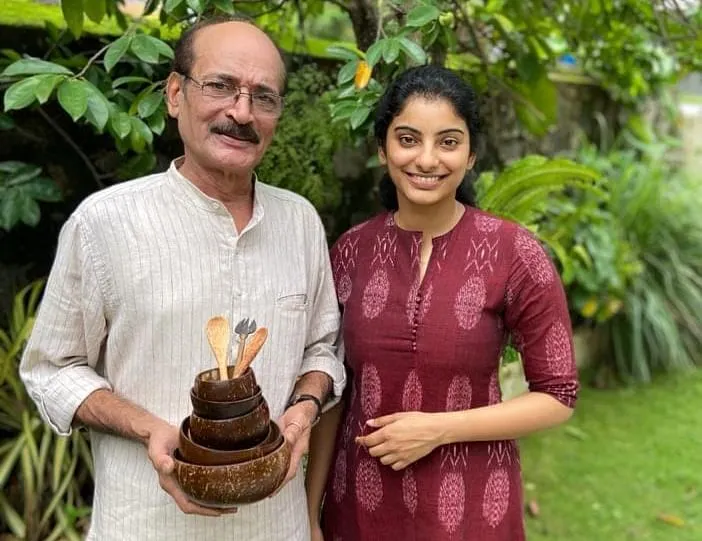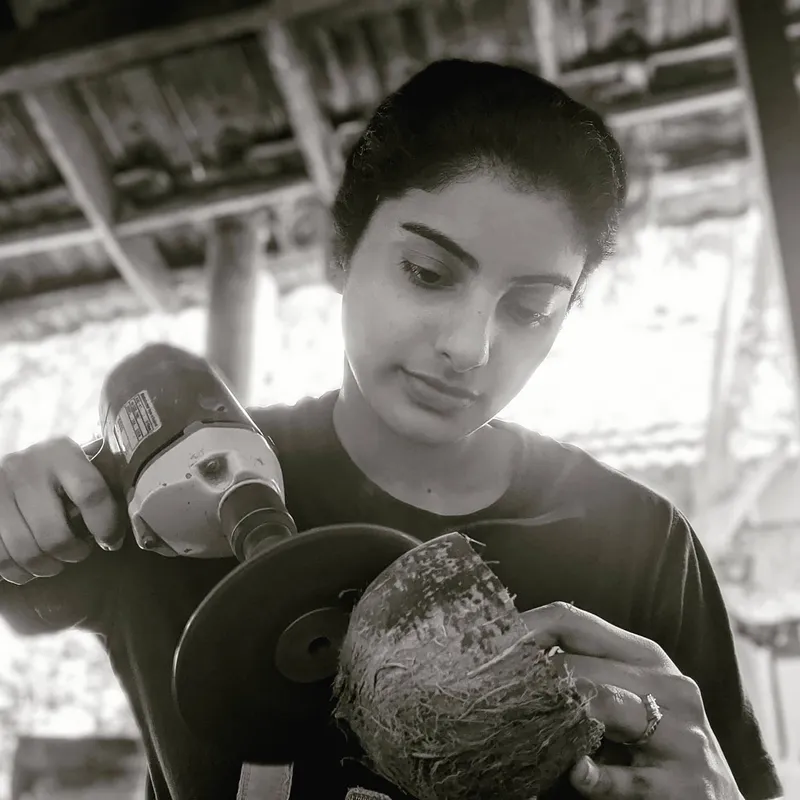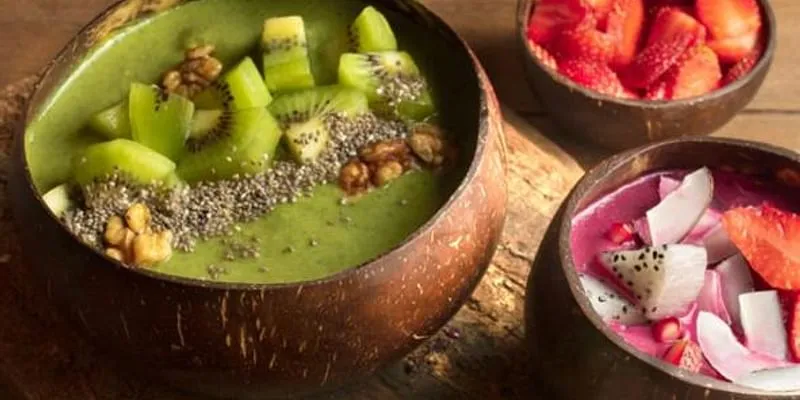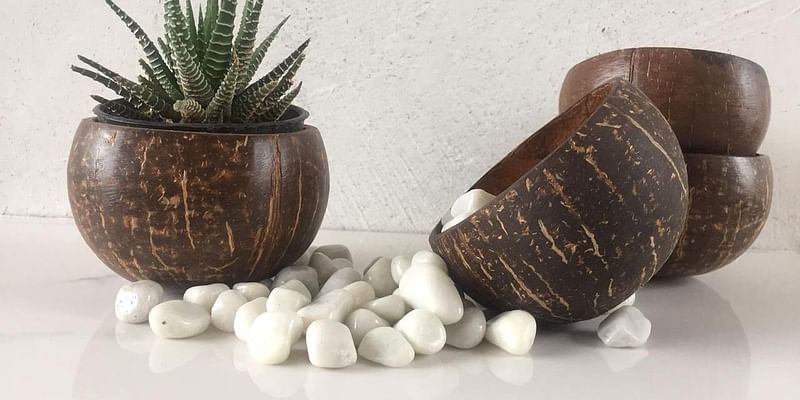Thenga – Maria Kuriakose has always desired a career as an entrepreneur. When the lockdown was announced last year, she decided to relocate from Mumbai to her native Kerala and pursue her dream of starting a’social enterprise’ from coconut shell waste.
“I always wanted to live a more eco-friendly lifestyle,” says Maria, Founder of Thenga, a sustainable lifestyle product that upcycles waste coconut shells.
The word ‘thenga’ means coconut in Malayalam and is unique because every part of the coconut tree can be used for something whether it is food, shelter, fuel or storage.

“I focused on the coconut shell because I noticed that despite its utility, a lot of it was frequently burned or discarded in landfills,” tells Maria.
Coconut shell is a sustainable, practical, and long-lasting alternative to plastic, particularly when used to make kitchenware. Additionally, it is easily decomposable. Unlike steel and plastic kitchenware, it can easily be broken down and mixed with soil,” she explains.
Reviving a dying tradition
Maria contacted a Thrissur-based coconut shell artisan who was already working with shells to create decorative items such as flowers. She shared her vision with him and met with him several times in his workshop, where he grasped her concept and also offered some guidance on how to execute it.
“I realised that these artisans did not have enough full-time work and were doing odd jobs like working on construction sites to sustain themselves,” says Maria.
She began collaborating with these artisans, who now devote 60% of their time to the manufacture of coconut shell products. As the brand has grown to include international orders, the team has expanded to include 12 artisans from five districts in Kerala. “As we expand, we are looking for additional artisans to join the group,” Maria explains.

“As a business, we understand the difficulties faced by artisans. As a social enterprise, artisans play a critical role in who we are. Therefore, even if they fall short of certain criteria, we ensure they are compensated for their efforts, train them, and require them to attend workshops to ensure it does not happen again,” she adds.
“I have always been interested in helping people and supporting them in a sustainable way. Instead of only giving people things, I want to teach them to live on their own. I see business as a good solution, because you can make money but also work for a cause. That concept is something I am very passionate about and that helped me push through the difficulties,” says Maria.
Keeping the business profitable while remaining true to the cause is a difficult balance to achieve and was initially difficult to navigate. She believes that supporting the artisans with whom she collaborates and selling the highest-quality products at the best price to customers are critical components of any social enterprise. “We strive to maintain a high standard of quality in order to charge reasonable prices and even share a portion of our profits with the artisans,” she adds.
However, Maria stated that interest in finding investors was low. “I was contacting oil mills to inquire about purchasing the shells they were discarding after extracting oil from the flesh. My father, a retired engineer, assisted me in developing a machine to polish the shells,” Maria explains, adding that they devised a low-cost system for drying and polishing coconut fibre using fan paper and coconut oil.
“We distributed it to a few business establishments, from which we received our first batch of orders. We continue to be a self-funded startup.”

Challenges on the way
A major challenge that she faced was with the sizing of the shells. “The coconut shell is a natural product that comes in a variety of sizes. Getting 100 or 200 shells of a particular size is quite difficult,” she says.
“In the beginning, I just went around in Kerala, asking friends and families for coconut shells because everybody had coconut trees in their backyard. I went to a few oil mills and manufacturers and asked them. That’s how the first set of 1,500 came out. I had to also polish it all myself at that time as I didn’t have any help. So that was a really challenging time for me.” Maria said.
Impact of the pandemic
However, during the pandemic, sales were higher than usual. Maria believes this is because people are reverting to more sustainable lifestyles and returning to more traditional, healthier ways of life. However, due to a staff shortage, running and coordinating has become difficult.
Thenga intends to continue growing and expanding its reach in the future. They want to reach lakhs of people from their current customer base of 3,000, ensuring that their impact is felt far and wide. Additionally, they intend to expand their product line by manufacturing coconut shell toys and containers. The goal is to spread more sustainable ways of life while also providing better job opportunities for Kerala’s artisans.




